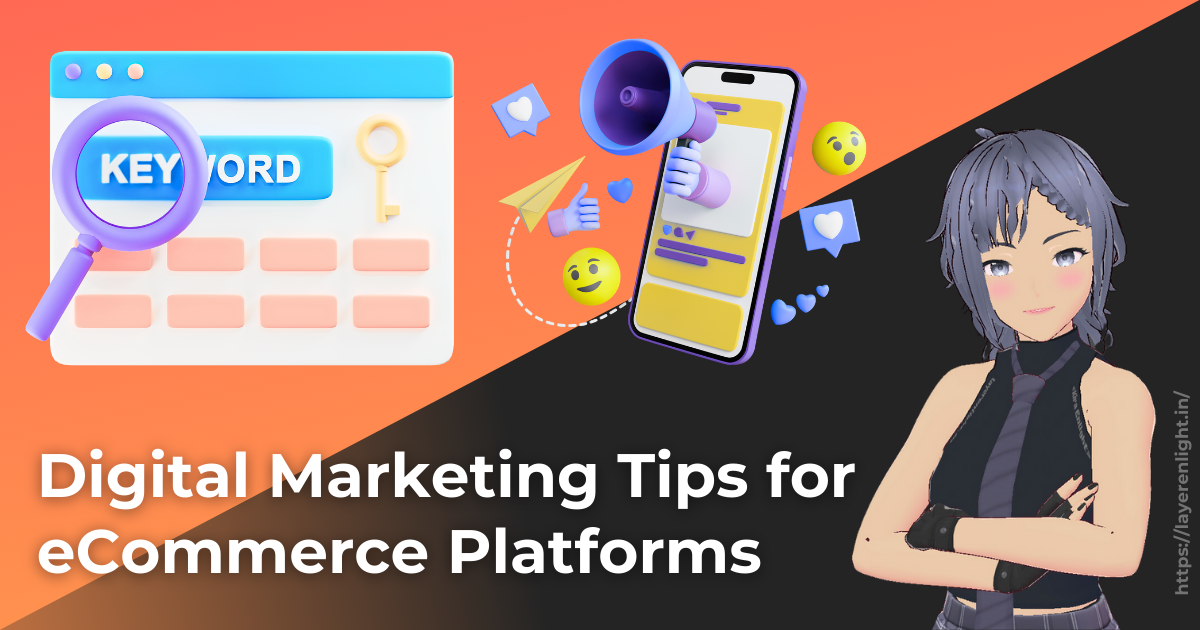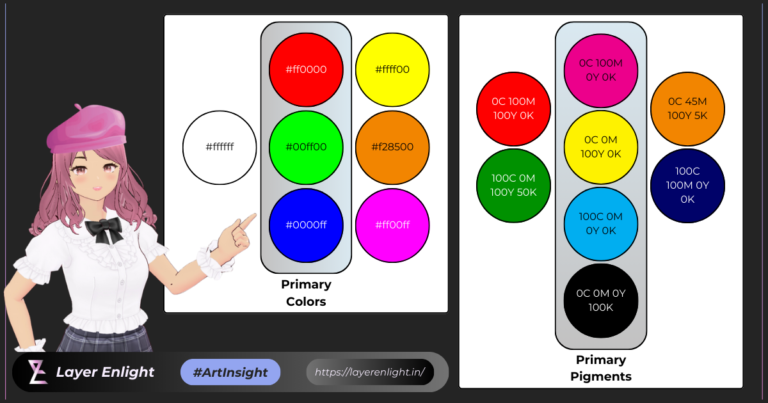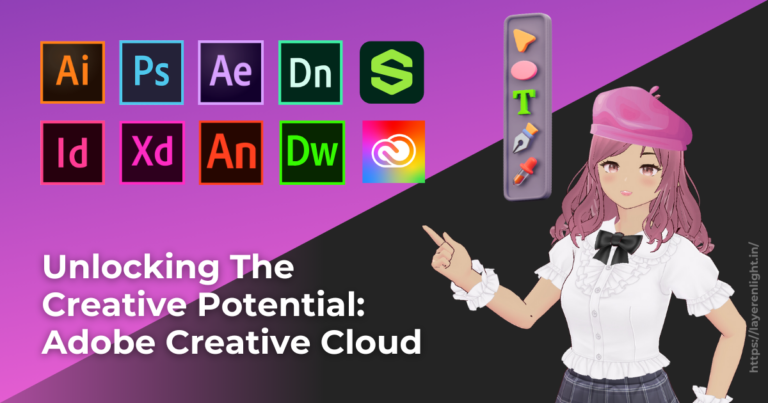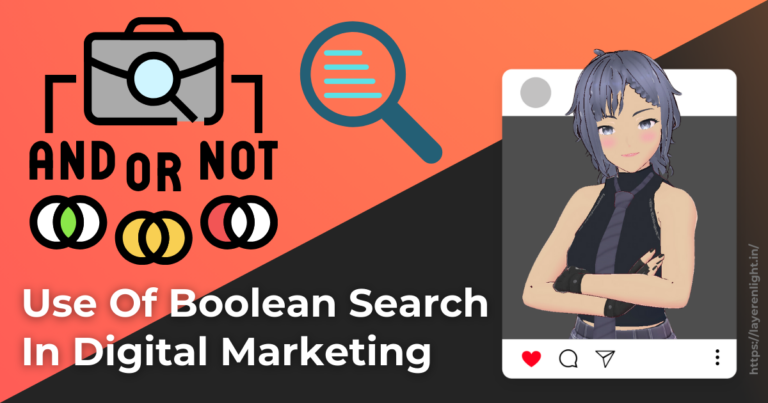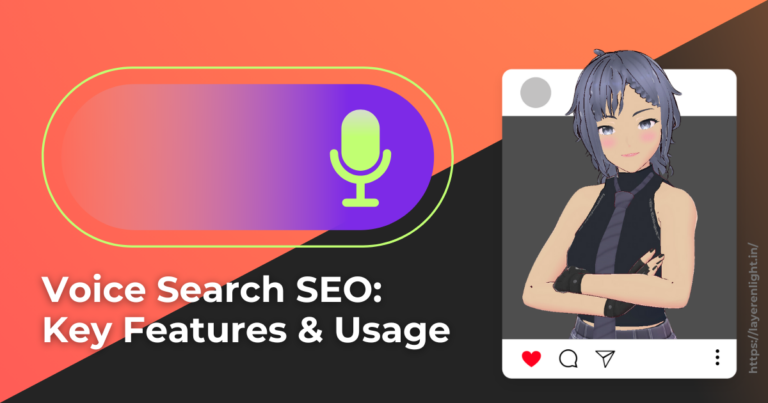Some Digital Marketing Tips For eCommerce Platforms
The tips & strategies listed below describe Internet Marketing (aka Digital Marketing) strategies for eCommerce platforms.
- Planning the Keyword strategy (both on-page keywords & keywords for off-page SEO/backlinking) based on competitive research, historical data and future plans. Have your presence not just on short tail keywords but also on long tail keywords. Run A/B testing to see which keywords/tags give you better results.
- Ensuring dynamic sitemaps (including product sitemaps of the eCommerce store), structured data, rich results, schema, indexing on GSC.
- In case the eCommerce company has any offline outlets, then making sure to list and rank that address on Google Maps and have moderately good reviews/ratings on it.
- For eCommerce platforms having mobile app as well, App Store Optimization (ASO) is essential.
- Ensuring the eCommerce platforms (website and apps) are integrated with indexing, tracking, analytics & automation platforms such as Google Tag Manager, Google Search Console, Google Analytics 4/ Adobe Analytics, Meta Business Suite, Google Data Studio, Google Ads/DV 360, Google Merchant Centre, any CRM, Pabbly/etc.
- Maintaining consistency across all platforms be it social media platforms or website and apps.
- Keep track of what netizens are talking about your brand using Social Listening tools such as Brandwatch/ Hootsuite, etc. Utilize Boolean query to make such processes easier.
- Maintain the ORM (Online Reputation Management) of the eCommerce company. Track the progress on tools like SEM Rush, Moz, etc. When needed, disavow the irrelevant/fraud links (which could be backlinks made by others/enemies).
On-Page SEO & Off Page-SEO for eCommerce Platforms:
On-page SEO is not just limited to keywords, meta data & indexing the webpage. To keep the landing pages top notch, a seasoned digital marketer must have at least the basic understanding of websites / apps, its UI/UX, and where and how to utilize them for proper conversion tracking. It is essential for digital marketers to communicate such requirements to the web developers, app developers, UI designers, etc. in an effective way. And that is why basic level skills of HTML, php, javascript, XML, etc is also required these days in the digital marketing field. With proper co-ordination, all these skills can act wonders for the eCommerce company (prospect/client).
Some other uncommon things in on-page SEO is ensuring that the webpages of a site has proper open graph data, so that when your webpage’s link (and its meta data & open graph image) is shared on other websites such as Facebook/ Twitter/X, etc. then the cards are visually perfect. For example- for Facebook, the ideal open graph image dimensions is 2:1 therefore, digital marketers must co-ordinate with the graphic designers and the media team about such requirements.
Have internal linking (hyperlinks) as well to keep your visitor/customer visiting more and more of your web-pages. Another way to do so would be having a sliding row of recommended products whenever a visitor is any product page.
Off-Page SEO basically means making your resources (webpage link, app link, deep linked URLs, web pages with UTM parameters, PDFs/documents with your links) available on other platforms but in an organic way. In this context, organic refers to not using dynamic advertisement platforms like Google Ads, Facebook ads, etc. Off-Page SEO and backlinking can be done by sharing your URL on a host website/platform but the host platform could provide you with two options (or most of the times you won’t get to choose) i.e. either a do-follow link or a no-follow link.
The difference here is that do-follow links pass SEO value, helping improve search engine rankings of the linked site/web-page. Whereas no-follow links which tells search engines not to pass SEO value, thus not influencing the linked site’s ranking. Both types guide the users to the right destination (i.e. your webpage), but only do-follow links impact the SEO of your website. Both do-follow and no-follow are equally important for a good backlinking strategy.

Most eCommerce platforms these days are build using the popular tools/platforms such as Magento, WooCommerce, Shopify, Prestashop, Opencart, etc. There are multiple SEO plugins for these platforms that businesses can utilize to streamline every thing & make their on-page SEO tasks dynamic and easier. Businesses can even get their own CMS &/or plugin made with the help of developers and fully customize it according to their needs.
Other than that, SEO must be done on a consistent basis without any long duration breaks. Keeping up with the trends is also necessary.
These were some digital marketing tips, suggestions & strategies for eCommerce platforms. Subscribe to us, follow us and you can also reach out to us if you need our freelancing assistance for Digital Marketing & 2D/3D graphics design.
